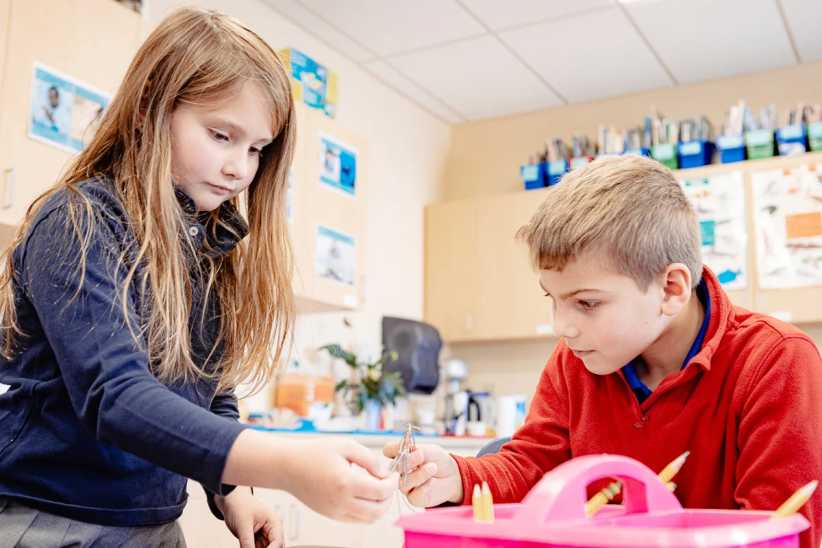Increased academic pressure and the rise of technology have made cheating a problem more common than you might imagine. Here are tips for keeping your kids honest in their schoolwork.
When it comes to cheating, Dr. Michael Hartnett has seen it all: The college student who sits in the back of the lecture hall during a test and texts the questions to his girlfriend; the high school senior who pieces together a counterfeit Shakespeare paper from the thousands of free essays he finds by searching Google; the seemingly model student who thoughtfully does her homework, then sends a picture of it to her classmates via mass e-mail.

With a treasure trove of information just a click away (now not just anytime, but anywhere, thanks to the proliferation of Smart phones), technology has made cheating easier than ever.
“As a teacher for the last 25 years, I have had a great many encounters with cheating, some bizarre, some funny, some dark,” says Hartnett, a teacher at Jericho High School, adjunct professor at Long Island University, and father of three. It was these experiences that inspired him to write The Great SAT Swindle (Smith 2010), a novel about cheating and its repercussions that doubles as an SAT vocabulary guide (complete with more than 1,500 SAT words and definitions).
Beneath the twisted tale of high school student Matt Drury’s academic downfall, Hartnett addresses the rise of cheating in the age of electronic devices. “People have always cheated. It’s always been a part of academics,” he says. “The big change today is technology. It’s by far the biggest influence and the reason why there is so much more cheating.”
The Problem
It appears that today’s students do grasp the definition of cheating, but there has been a shift in the general attitude toward it that makes it more acceptable. According to a 2010 study by the University of Nebraska-Lincoln, 89 percent of high school students said glancing at someone else’s answers during a test was cheating, but 87 percent said they’d done it at least once. And in media coverage of a recent scandal surrounding an alleged SAT cheating ring at a prestigious high school in Great Neck, one female student from the school was quoted in newspapers as saying, “Everyone knows about it. You get the feeling that it’s widespread, and not just here.”
 A decrease in the stigma toward dishonesty, coupled with increased competition for admission into universities and graduate schools, has made students more willing to do whatever it takes to get the A, says Vicki Abeles, co-director of Race to Nowhere, a 2010 documentary that takes a hard look at America’s approach to education. The stakes are high. (On a local note, the film includes interviews with students and teachers from The Wheatley School in Old Westbury, Long Island)
A decrease in the stigma toward dishonesty, coupled with increased competition for admission into universities and graduate schools, has made students more willing to do whatever it takes to get the A, says Vicki Abeles, co-director of Race to Nowhere, a 2010 documentary that takes a hard look at America’s approach to education. The stakes are high. (On a local note, the film includes interviews with students and teachers from The Wheatley School in Old Westbury, Long Island)
“We have such a competitive culture and education system. It all comes down to how you as an individual are going to perform in the system,” says Abeles, a mom of three who lives in California. “As soon as you’re focused on performance outcomes rather than [individual] growth, I think people will compromise their values.”
With cheating quickly becoming – dare we say it – the norm, you will need to arm your kids with more than morals to help keep them academically honest.
Tips for Parents
Intervene early. According to a poll by the Educational Testing Service and Ad Council, between 75 and 98 percent of college students who confessed to cheating reported that they set such a personal standard in high school. But the organizations believe the motivation to cheat can start as early as elementary and middle school due to increased academic pressure. With that in mind, start talking to your kids about cheating early on, and prevent the bad habits before they form.
Stay involved. “Parents should be committed to their son’s or daughter’s learning,” Hartnett says. “If parents are aware of what’s going on, they’ll know something is up when their son is getting A’s on a Hamlet test and they didn’t see him read the book.”
Focus on the future. Dr. Harnett advises parents not to focus on the moral aspects of cheating. Instead, he says, stress the fact that there are no Spark Notes in the real world. “Get across to your son and daughter that when they’re out in the workforce, what use are they when they’ve been cheating their entire [academic] career?” Hartnett says. “School is to teach you the ability to think and constantly learn. These are skills a cheater doesn’t have.”
Abeles agrees that families should discuss the long-term drawbacks of cheating. “When they’re not learning the material, the only people they’re cheating are themselves.”
Don’t cover for them. “If I knew my kids were cheating, I would want them to go talk to educators at school and face the consequences. I wouldn’t cover for them,” Abeles says. It’s better for kids to own up to their mistakes early on, when the consequences aren’t as great, agrees Hartnett. That way, kids will hopefully learn from their actions and be less likely to behave the same way in the future.
Limit tech time. Hartnett advises parents to set aside a time for homework in the evenings and take away the temptation to cheat by banning any electronic devices. “We’re so used to distractions that they become wedded with the cheating methods available,” he says. “I recommend parents designate one or two hours where kids do homework and studying away from every electronic device known to man.”
Be a good role model. Set a good example by limiting your at-home computer and tech time, too. Bonus: You’ll have more time to talk and connect with your kids without the constant flow of work e-mails and Facebook notifications.
To ease academic pressures, Abeles says, let your kids know that it’s okay to make mistakes – that mistakes are, in fact, how we learn. “I share all my mistakes with my kids. We want them to make mistakes when we can be there to help them and be supportive,” she says. “We don’t want to raise a generation of perfectionists or cheaters – neither are beneficial to society.”
By the Numbers
Source: nocheating.org; Josephson Institute of Ethics; Educational Testing Service |
Also see:
• How to Prevent a Homework Meltdown
• Four Tips to Break Your Child’s Bad Homework Habits
• Our Education guide, for schools, tutors, and test prep in the NYC area




















